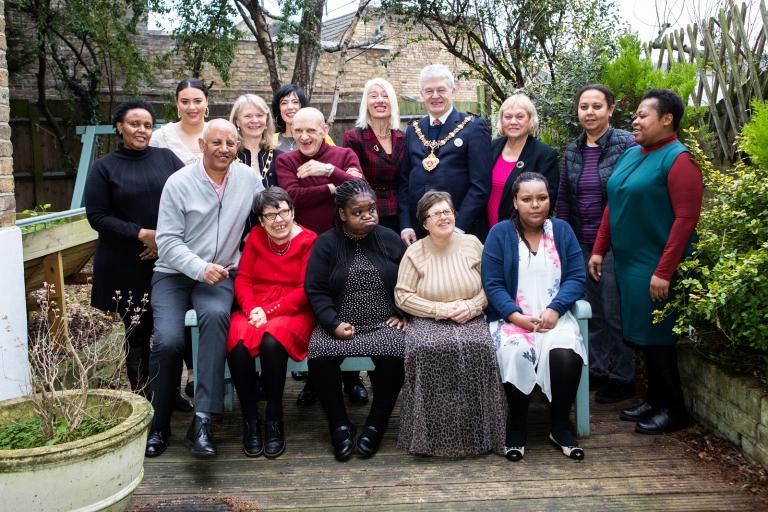Published: Friday 24 January 2020

Two care homes providing traditional and high-tech approaches to supporting people with learning difficulties were visited by the Mayor and Mayoress, councillors Will Pascall and Sarah Addenbrooke on Wednesday (22 January).
Ten people live in the homes, run by Certitude, which have been open for seven years. The residents receive bespoke, round-the-clock care to ensure they have as much control over their lives as possible.
Traditionally people with learning difficulties are helped through speech, sign language (Makaton) and using objects for reference. Certitude have built on this and are also using newer approaches, including tablets and apps that enable people to have more control over what they are doing, such as by turning lights on and off in their home.
One of the residents, Susan, said: “I like it here, the Certitude staff support me well. They help me walk as sometimes I find it hard to move. We do lots of things together, like listen to music or go dancing. I baked the cakes for everyone today.”
The Mayor added: “I have really enjoyed meeting people today and seeing first-hand the high level of support offered to people with learning disabilities. It was great to meet residents who enjoy living here and staff who are passionate about what they do. It is very encouraging to know that such wonderful support is available in the borough.”
The Mayor and Mayoress also met the Chair of Certitude, Eleri Ebenezer; CEO of Certitude, Aisling Duffy and Manager Shamsuddin Burug who explained the support Certitude provide residents.
Aisling Duffy said: “It was fantastic to have the Mayor and Mayoress take an interest in our approach and engage with the people we support. The visit was a great opportunity to show them how excellent support is being achieved in Kensington and Chelsea. With government cuts to social care, it is vital that those with the most complex needs are not left isolated and vulnerable.”
Certitude has been providing personalised support across London to people with learning disabilities, autism and mental health support needs as well as families and carers for nearly 30 years.
